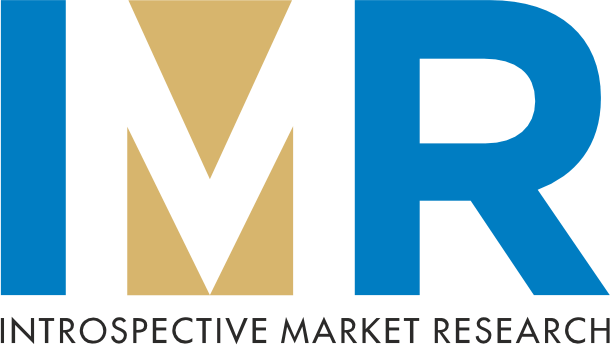
Blockchain is demonstrated to be the ideal technology to drive the food and agriculture industry. The ledger technology is currently being applied to track food supply chains and manage food safety measures.
As the cryptocurrency marketplace continues to increase, various organizations are using blockchain and smart contract technology to solve social and environmental issues. There is little margin for error in the food and agriculture industry. One tragedy in food supply or preparation can send people to the hospital, or worse still, an early grave. The main culprit in most foodborne contagions is inefficient tracking. When outbreaks occur, traditional food supply methods make detecting the origin of the contamination difficult and time-consuming. Blockchain is being championed as a solution. According to, FDA Commissioner Scott Gottlieb, food suppliers should experiment with blockchain because it could link the epidemic to a specific grower, specific farm, and a specific distributor.
Retail giant Walmart recently employed blockchain to track and trace its lettuce supply chains and is being hailed as a next-generation solution in food safety. Walmart's blockchain can track down food back to its grower in a mere 2.2 seconds.
As blockchain becomes growingly prevalent in food safety (it also processes payments more quickly and distributes digital coupons for restaurants), we've rounded up five top key players that are using the technology to switch the way eat.
1. IBM Blockchain (US)
IBM generated the IBM Food Trust to help bring transparency and efficiency to food supply chains. The company has several products that measure food safety and freshness and assist to reduce waste. Real-time certifications, test data, and temperature data ensure that proper food handling protocols are met. Trackability and transparency are some of the most important foundations of logistics. IBM Blockchain improves business transactions and trading relationships with robustly secure business networks on blockchain both at scale and globally. Blockchain provides a shared ledger that is upgraded and validated in real-time with each network participant. It allows equal visibility of activities and reveals where an asset is at any point in time, who owns it, and what condition it's in.
Key Strategic Movement: IBM collaborated with Walmart to help introduce the retailer's food track-and-trace program. IBM's open-source ledger lets Walmart officials trace the lifespan of their products, from farm to table, to ensure safety. Walmart announced the initial ledger experiment (for lettuce) as a success and plans to conduct further experiments with other foods soon.
2. Ripe.io (US)
Ripe.io uses blockchain to improve transparency in the food supply chain. The Ripe.io blockchain ecosystem has a variety of tools to track the food journey, as well as supply chain tracking, bran quality verification, secure data aggregation, and sensor and IoT integration. By unrivaled leveraging blockchain technology, the company generates a digital bridge that produces transparency, trust, and honesty for food producers, distributors, and consumers. The company wants to transform the food system narrative by working with every actor along the food supply chain to produce a world in which access to data equals integrity, sustainability, security, and better food for all. Farmers will be able to leverage IoT and sensors to automate processes and efficiently accomplish market demand for high-quality, sustainable products. Distributors will be able to transparently track food products to offer real-time data on food safety and delivery. Customers will receive trusted, certified information on the journey of their food, creating a new standard of food quality.
Industry Impact: Blockchain is being executed in many ways throughout the end-to-end food process. With Ripe.io, farmers leverage blockchain-backed IoT devices to automate farming processes, distributors track food in real-time, and consumers receive verified information regarding their food's journey.
3. AgriDigital (Australia)
AgriDigital is a blockchain-based and integrated commodity management solution for the global grains industry. The platform assists to process complex agricultural transactions through smart contracts. They combine high-end technical and industry expertise with beautiful design and intuitive workflows to offer seamless solutions to complex commodity, logistical, risk, and customer management issues. The company is a global leader in software platforms developed to help in the transaction and settlement of agricultural commodities and to manage supply chain risk. By the applied blockchain technologies, distributed ledgers, and smart contracts, AgriDigital offers real-time payment to growers, increased efficiencies for brokers, a flexible supply chain for buyers and financiers, and paddock to plate transparency for consumers.
4. FoodCoin (US)
The FOODCOIN ECOSYSTEM deals will take place with the use of smart contracts, while the transactions will accept a proper cryptocurrency named FoodCoin (FOOD). An extensive selection of tools, such as a proper "smart" wallet, a remote user identification system, flexibly configurable smart contracts, corroboration of the origin of food, and a proper crypto payment processor, will let the business process participants associated with food choose and customize the essential platform parameters to overcome current expenses. A significant potential may be in using FoodCoin Ecosystem in social projects. FOODCOIN ECOSYSTEM has the plans to help food and ag startups with the verified model, innovation content, and the crucial growth potential using the platform of 1000EcoFarms and FCE blockchain. The special crypto fund will be founded with this aim of view. The purpose of the fund will be an effective application of liquid money to build an integral ecosystem.
5. TE-FOOD (Germany)
TE-FOOD is a farm-to-table detectability solution, covering all logistics and food quality activities and data management of the supply chain. It offers cost-effective software and identification tools to make livestock and fresh food supply information transparent.
Key Takeaways
Blockchain technology boosts the following areas within the food and agriculture industry:
Optimization of the Food Supply Chain
Contributing information on the origins of food products is essential to ensure customer loyalty and confidence. Blockchain can essentially make any fruit or vegetable safe to buy like the ones grown locally from a nearby farm. With traditional supply chains, food retailers do not have an effective way of securing that all products were grown under conditions specified by a given supplier. That's why retail giants such as Unilever, Walmart, and Carrefour already resort to blockchain for tracking food products' places of origin. Furthermore, the time it takes to trace the origin of food is also hugely cut down. Taking Walmart as an example, it took nearly a week to trace the origin of their mangoes. Through the blockchain, this time is cut to a mere 2 seconds. In case a product is not up to a retailer's standards, limiting the time it takes to trace a product's source is pivotal as it empowers retailers to isolate this product more quickly thus decreasing the risk of harm to humans.
- Transactions
Blockchain in agriculture is unrivaled positioned to help not only simplify transaction processes but also to level the playing ground for small-scale farmers and crop growers, mostly from poor regions. It is projected that $940 billion worth of food goes to waste every year globally. In part, this happens to owe to farmers and growers from less emerged economies who do not always have access to wide markets, which leaves them incapable of selling all the food they produce. AgUnity is one blockchain startup that intercepts this issue by providing small players access to their proprietary blockchain-based platform for trading agricultural products and building trust between market participants. Their product enables individual market participants to form small co-operatives and work together. Another benefit blockchain brings to the table is the ability for agricultural producers to set prices more efficiently and effectively. This enables managing their output to match the demand for their products.
- Crop Insurance
In agriculture, smart contracts have unique execution in the form of helping farmers assure their crops and claim damages with insurance companies. Normally, it is a painfully slow and burdensome process, both on the side of the grower and the company that insures them. Uncertain whether irregularity makes it difficult to correctly estimate and quickly report the exact losses they cause. This leaves room for fraud and makes the process an operational nightmare. Through setting up engineered smart blockchain contracts, the damage claim can be triggered via changes to weather conditions that meet certain criteria, easing the process for farmers and insurers.
- Traceability
Demand for organic, local products is constantly increasing. Blockchain allows consumers to verify the journey of their product, tracing it from farm to table. Furthermore, it also offers data on when a product was harvested and produces as well as who produced it. This goes as far as to tell show consumers in which field their grass-fed beef, amongst other products, was increased – in a matter of seconds. As the information recorded on the blockchain is unchangeable, it can offer reliable information and is forgery-proof.






